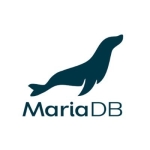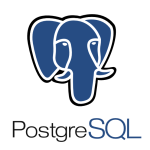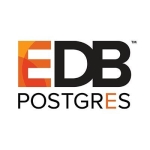
Infrastructure Expert at a tech services company with 1,001-5,000 employees
One of the best Databases on the market today.
What is most valuable?
MySQL is open source, highly extensible and scalable, and is available from a web interface via PHPMyAdmin, which is excellent because it's platform independent.In almost all instances that I have used MySQL, it has handled whatever I threw at it and hasn't failed me yet.
What needs improvement?
It is a community driven project, which means that support is sometimes scarce and hard to find. Also, it really doesn't have an IDE per-se, like MSSQL does.
What other advice do I have?
I use MySQL on a regular basis, specifically whenever I am managing or installing a Wordpress instance. Combined with PHPMyAdmin, MySQL is an excellent database solution for small to medium sized businesses or installations. I would recommend using a better supported database like Oracle or MSSQL for mission critical tasks on an enterprise level, but MySQL is completely capable of performing the same tasks as those other databases.
Disclosure: I am a real user, and this review is based on my own experience and opinions.
Project Manager at a computer software company with 1,001-5,000 employees
An easy to install and stable solution, but could be more secure
Pros and Cons
- "The solution is very stable."
- "The solution could be more secure."
What is our primary use case?
I do not recall which version I am using.
Although we do not use it for the main core system, the solution acts as a database which is useful for login applications, data warehousing.
What is most valuable?
The solution is so stable. I have encountered no problems.
What needs improvement?
The solution could be more secure.
For how long have I used the solution?
I have been using MySQL for a year.
What do I think about the stability of the solution?
The solution is very stable.
What do I think about the scalability of the solution?
The solution is not scalable at present.
How are customer service and technical support?
I do not have experience with technical support.
Which solution did I use previously and why did I switch?
Previously, we used Microsoft database.
How was the initial setup?
The solution is easy to install.
I cannot state how long implementation took.
What's my experience with pricing, setup cost, and licensing?
The solution does not come with a licensing fee.
What other advice do I have?
I do not know the number of users who are using the solution in my organization.
I would absolutely recommend this solution to others.
I rate MySQL as a seven out of ten.
Which deployment model are you using for this solution?
On-premises
Disclosure: I am a real user, and this review is based on my own experience and opinions.
Buyer's Guide
MySQL
April 2025
Learn what your peers think about MySQL. Get advice and tips from experienced pros sharing their opinions. Updated: April 2025.
849,190 professionals have used our research since 2012.
Information Systems Computer System Controller at a insurance company with 11-50 employees
Small application for easy deployment but has Java compatibility issues
Pros and Cons
- "The solution is a small application and is very easy to deploy."
- "There are some issues with compatibility with Java environments that need to be improved. When Oracle bought this solution there were some driver changes that caused some issues with operations."
What is our primary use case?
I have used the solution for a database tied to application development.
What needs improvement?
There are some issues with compatibility with Java environments that need to be improved. When Oracle bought this solution there were some driver changes that caused some issues with operations.
For how long have I used the solution?
I have been using the solution for approximately eight years.
What do I think about the scalability of the solution?
There are approximately 300 users using the solution in my organization.
How was the initial setup?
The solution is a small application and is very easy to deploy.
What's my experience with pricing, setup cost, and licensing?
There is a license for this solution. A lot of the time the solution gets bundled with other hardware or software purchases.
What other advice do I have?
I have plans to continue using the solution in the future.
I rate MySQL a seven out of ten.
Which deployment model are you using for this solution?
On-premises
Disclosure: I am a real user, and this review is based on my own experience and opinions.
EUC Techical Operation at a tech services company with 10,001+ employees
Stable, easy to install, and comes with community support
Pros and Cons
- "I like MySQL because of its community."
- "MySQL doesn't have the auto-clustering and database clustering features that other competitors provide. They can include these features."
What is most valuable?
I like MySQL because of its community.
What needs improvement?
MySQL doesn't have the auto-clustering and database clustering features that other competitors provide. They can include these features.
For how long have I used the solution?
I have been using MySQL for about two years.
What do I think about the stability of the solution?
It is stable.
What do I think about the scalability of the solution?
It is really easy to scale. We have around 20 to 40 users who use it regularly.
How are customer service and technical support?
I never interacted with their technical support. If there is any problem in my project, I just look for it on Stack Overflow and fix it easily. It also comes with good documentation.
How was the initial setup?
It is easy to install. The deployment duration depends upon your internet connection. If you have a good internet connection, the deployment would be faster.
What other advice do I have?
I would recommend this product if someone is new to the IT world.
I would rate MySQL an eight out of ten.
Which deployment model are you using for this solution?
Private Cloud
If public cloud, private cloud, or hybrid cloud, which cloud provider do you use?
Other
Disclosure: I am a real user, and this review is based on my own experience and opinions.
QA Lead at a logistics company with 1,001-5,000 employees
Allows us to share virtually created database instances
Pros and Cons
- "I feel that some tools which make it easier to create queries or make it easier for other functions would be really interesting to see."
What is our primary use case?
I'm a tester, an optimization tester. It's basically when the developers have the back-end in SQL. We go and test it out for them and check that the table updated correctly, and we do something on the front-end.
How has it helped my organization?
To give you an example, initially we didn't have a database server as such, and we had to make use of some database. Now we use something where we can share the instances of the database which were created virtually, which is a very good feature, which I felt has improved our organization.
What is most valuable?
The most important features would be querying, the query language where you have the data definition or data modification language, as well. In some cases, we have to create our own tables for testing purposes. In that case, having SQL Server is much easier compared to what's available.
What needs improvement?
I feel that some tools which make it easier to create queries or make it easier for other functions would be really interesting to see.
For how long have I used the solution?
More than five years.
What do I think about the stability of the solution?
Pretty much since we have our own in-house SQL branch, the administrators are there, so they take care of the stability with the product. As far as I've seen, there really hasn't been much of an issue with stability.
What do I think about the scalability of the solution?
It's pretty scalable.
How are customer service and technical support?
I haven't contacted them, so I have no experience with them. We generally have an internal team which would work on it. So our point of contact is an internal team, rather than going to MySQL.
Which solution did I use previously and why did I switch?
I've used a lot of different solutions. MySQL is one of the top among them. Usability and scalability are some of the reasons we went with MySQL.
How was the initial setup?
It was pretty straightforward. No hassles with the setup.
Usually the setup is done by the IT admin guys, but it was pretty straightforward. The IT admin guys had to come in and give us the rights to install it.
What's my experience with pricing, setup cost, and licensing?
I'm not sure about pricing, I don't deal with the pricing. It's an organization decision.
Which other solutions did I evaluate?
There were many options.
What other advice do I have?
No one tool fits the bill for every company. Do a feasibility study, and get to know what is can do before going in and developing.
Disclosure: I am a real user, and this review is based on my own experience and opinions.
Data Scientist / Consultant with 501-1,000 employees
You can build data models both on-premises and on the cloud
What is most valuable?
- Open Source (It’s free)
- One can easily find help on the web
How has it helped my organization?
You can easily build data models both on-premise and on the cloud.
What needs improvement?
The work bench has some bugs that are mostly GUI related.
For how long have I used the solution?
I have used this solution for three years.
What do I think about the stability of the solution?
I did not encounter any issues with stability.
What do I think about the scalability of the solution?
I did not encounter any issues with scalability.
How are customer service and technical support?
I use the community version. There are ample “Open Source” resources on the Internet.
Which solution did I use previously and why did I switch?
We used Microsoft SQL and Postgres.
Disclosure: I am a real user, and this review is based on my own experience and opinions.
Software Tester & SQA at a manufacturing company with 501-1,000 employees
The InnoDB database allows us to store and execute procedures and roll-backs.
What is most valuable?
I couldn't name just one most valuable feature. You can use it under different cases, but most of the time I needed the database as a part of my project. I think, in one moment you will prefer the InnoDB database, so you can store and execute procedures and roll-backs.
How has it helped my organization?
Again, I couldn't name an positive aspect precisely. Maybe, the fact that using MySQL and Java gives it a big portability and, at the same time, short time responses within your product (my case). This could come from the DB side. It also allows for easiness of finding interaction tools with MySQL.
What needs improvement?
None that I can name. At the moment I worked with MySQL, there was nothing I couldn't do with the product.
For how long have I used the solution?
I've been using it for four to five years.
What was my experience with deployment of the solution?
There were no issues with the deployment.
What do I think about the stability of the solution?
It's a pretty stable product for what I needed it to do.
What do I think about the scalability of the solution?
There have been no issues scaling it.
How are customer service and technical support?
Being a community product, you can find solutions all over the internet. It's not a specific support department.
Which solution did I use previously and why did I switch?
There was no solution in use previously.
How was the initial setup?
It was quite easy. The product comes with an installer. It can be complicated to configure the MySQL server, but with a little attention, all goes well.
What about the implementation team?
It was done in-house.
What's my experience with pricing, setup cost, and licensing?
It's free.
What other advice do I have?
It helped me within my projects. For a free product, it works very well and it's easy to use and configure.
Don't try the most sophisticated products, that have big names, and cost a ton. Just try this product if you need something cheap and reliable. I don't think it will disappoint, at least not in my case.
Disclosure: I am a real user, and this review is based on my own experience and opinions.
Open Source Database Consultant
A high level of support due to a lot of documentation and expertise in the world
What is most valuable?
- Vertical scalabity on hardware
- Better hardware usage
- Access performance
- Addressing consistency, scalability and performance issues
How has it helped my organization?
Storage and searching quickly on data is no longer an issue facing us using Excel.
What needs improvement?
Hardware scalability and parallel treatment can and will be improved in the next few years.
For how long have I used the solution?
For 15 years now.
What do I think about the stability of the solution?
No, there are only strategies applied by a data scale interval (less than 200 go, less than 1 to, and more than 15 to).
What do I think about the scalability of the solution?
Always due to architecture, data storage, and data requesting irrelevant strategies.
How are customer service and technical support?
High. There is a lot of documentation, a lot of expertise, and a lot of projects in the world.
Which solution did I use previously and why did I switch?
We switched to a different solution because of data access issues, speed, and consistency.
What's my experience with pricing, setup cost, and licensing?
Don't use the license version. Open source is enough.
Which other solutions did I evaluate?
There are a lot of alternative to paid features. It's very hard to find support for this feature.
What other advice do I have?
You will have a lot of work, but you will also avoid a lot of issues due to product immaturity on the database market.
Disclosure: My company has a business relationship with this vendor other than being a customer: Partner.
Buyer's Guide
Download our free MySQL Report and get advice and tips from experienced pros
sharing their opinions.
Updated: April 2025
Popular Comparisons
MariaDB
PostgreSQL
Firebird SQL
Faiss
InfluxDB
OpenSearch
Milvus
SQLite
EDB Postgres Advanced Server
Percona Server
YugabyteDB
Oracle MySQL Cloud Service
Buyer's Guide
Download our free MySQL Report and get advice and tips from experienced pros
sharing their opinions.
Quick Links
Learn More: Questions:
- Which solution do you recommend for embedding reporting? Why?
- Did you switch from a different solution to MySQL? Can you list a few pros and cons for making the move?
- Why are MySQL connections encrypted and what is the biggest benefit of this?
- Considering that there is a free version of MySQL, would you invest in one of the paid editions?
- What is one thing you would improve with MySQL?
- How does MySQL compare with Firebird SQL?
- When evaluating Open Source Databases, what aspect do you think is the most important to look for?
- Did you switch from a different solution to MySQL? Can you list a few pros and cons for making the move?
- Which database is the best for session cashing?
- Why is Open Source Databases important for companies?















MySQL can be integrated with LAMP/WAMP, web applications and number of programming languages. It is widely used for phpadmin and wordpress now a days.